Indigenous Governance Database
sustainability
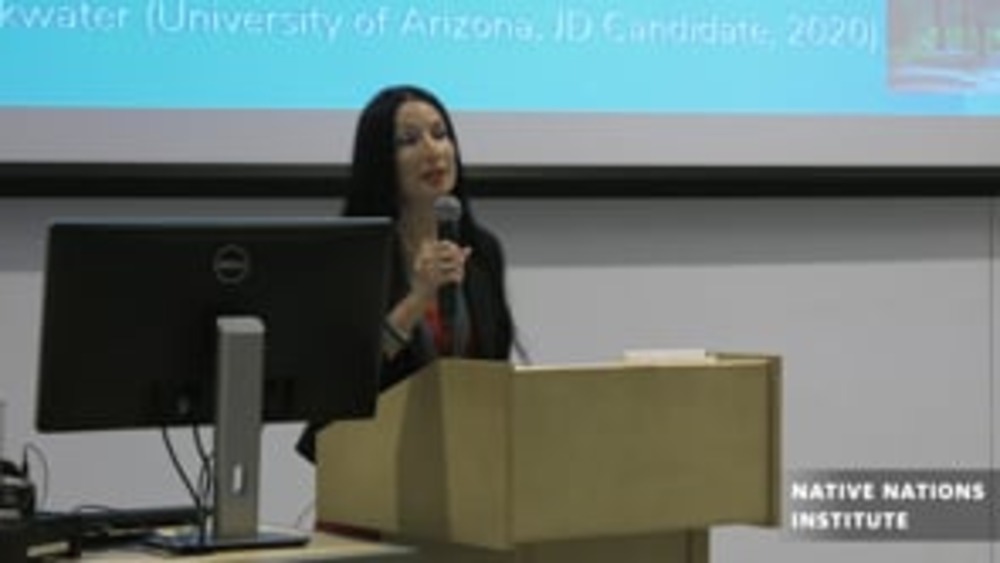
Rebecca Tsosie: Indigenous Sustainability and Resilience to Climate Extremes
The School of Geography & Development presented the “My Arizona” Lecture of Prof. Rebecca Tsosie, Regents Professor of Law at Univeristy of Arizona on Friday, November 1, 2019. Her lecture, "Indigenous Sustainability and Resilience to Climate Extremes: Traditional…

Preparing for the health impacts of climate change in Indigenous communities: The role of community-based adaptation
Climate change presents substantial risks to the health of Indigenous peoples. Research is needed to inform health policy and practice for managing risks, with community based adaptation (CBA) emerging as one approach to conducting research to support such efforts. Few, if any, studies however…
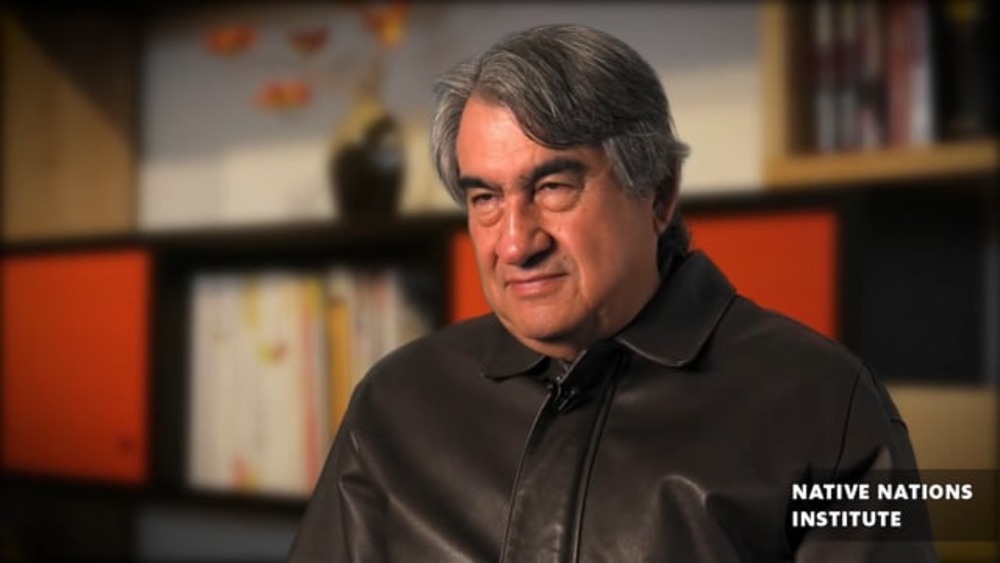
Greg Cajete: Indigenous governance and sustainability
Greg Cajete, Tewa of the Santa Clara Pueblo and a renowned scholar and author on indigenous education serves as the Director of Native American Studies at the University of New Mexico. His works have merged native history, cultural practices, and knowledge into the cross section of education…
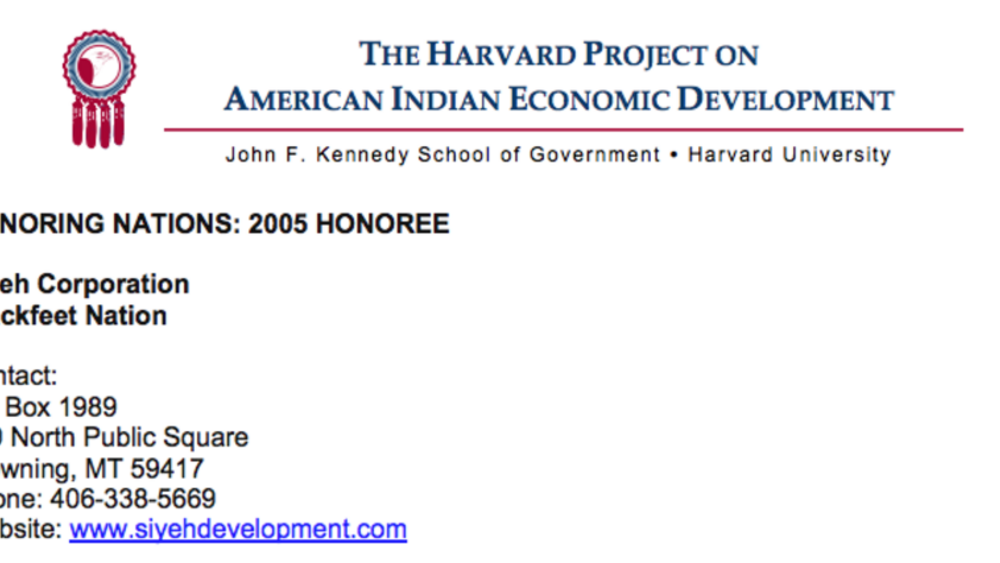
Blackfeet Nation's Siyeh Corporation
For years the Blackfeet Nation struggled to create sustainable tribal enterprises that could produce revenue for the nation and meet the needs of its citizens for jobs and services. Many of these efforts did not succeed because of conflicts within the tribal government. In 1999, the Nation tried a…
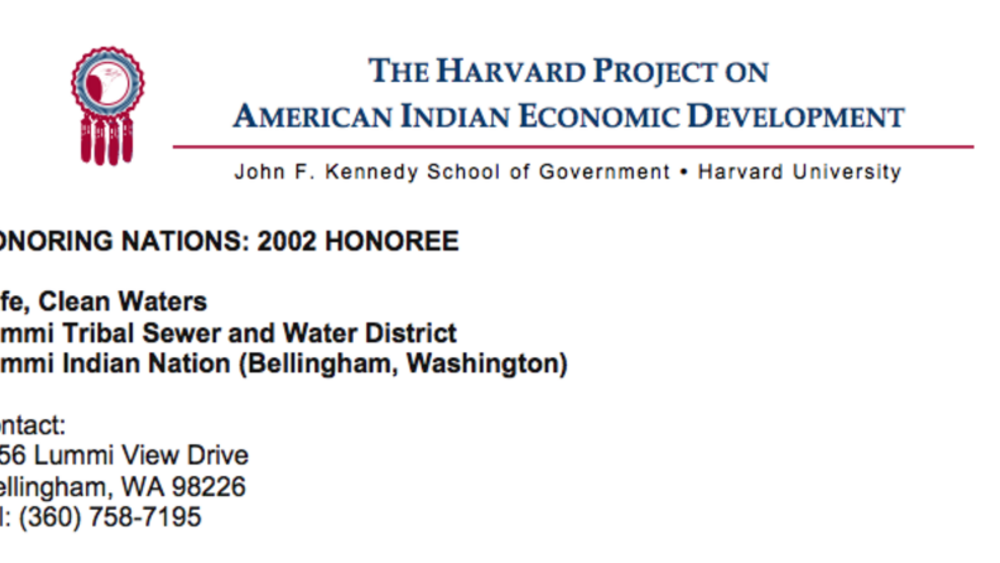
Lummi: Safe, Clean Waters
Governed by a five-member, independently elected board that includes two seats that are open to non-tribal fee land owners, the Lummi Tribal Sewer and Water District provides water, sanitary and sewer infrastructure, and service to 5,000 Indian and non-Indian residents living within the external…
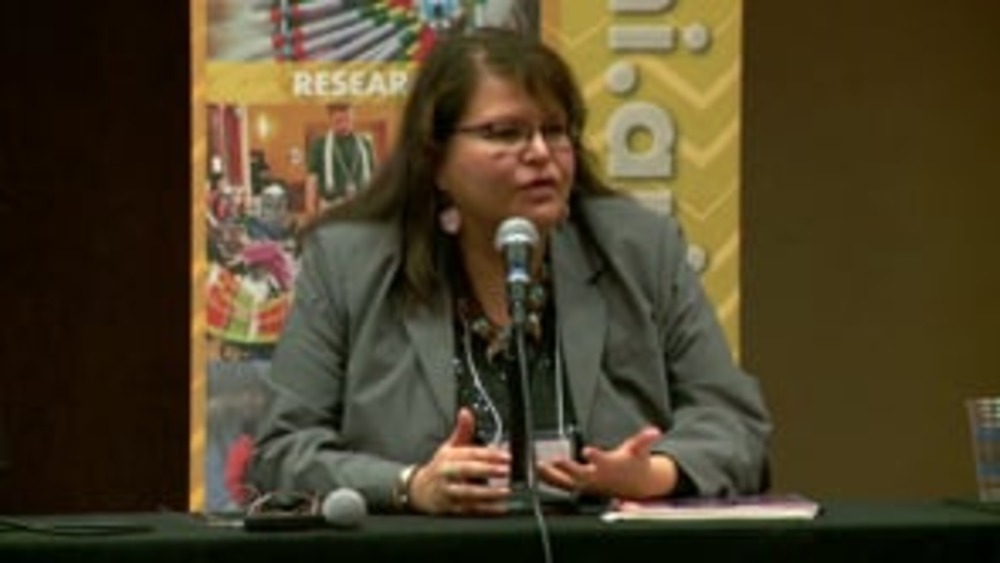
Eldena Bear Don't Walk and Rae Nell Vaughn: So What's So Important About Tribal Courts? (Q&A)
In this short session, panelists Eldena Bear Don't Walk and Rae Nell Vaughn delve into further detail about the importance of tribal justice systems receiving adequate funding in order to administer justice effectively. Robert Yazzie, former Chief Justice of the Navajo Nation Supreme Court, also…
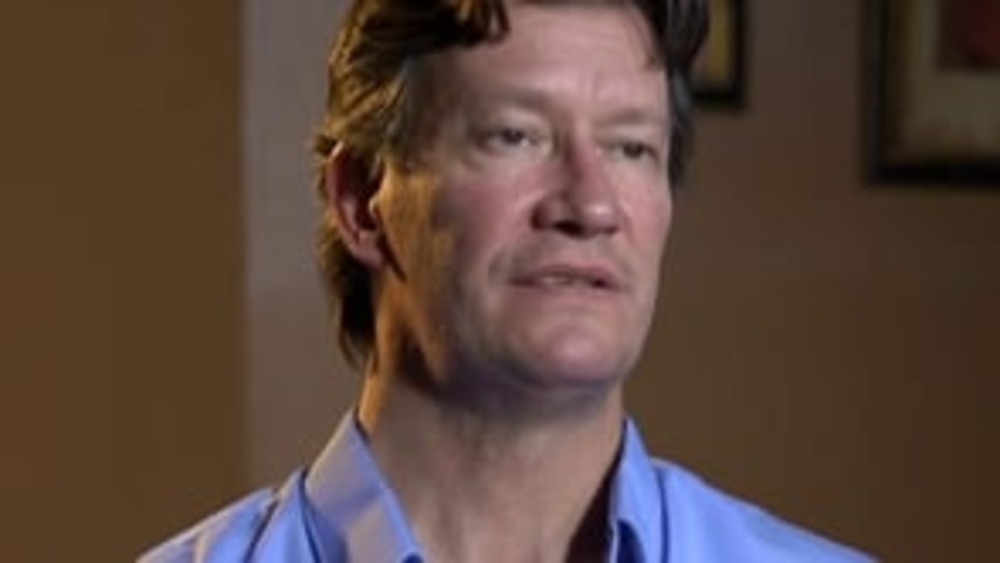
Native Leaders: The Purpose and Challenge of Redefining Citizenship
Several Native leaders share their thoughts on why their nations are deliberating potential changes to their citizenship criteria, and they discuss some of the many challenges that Native nations face in this complex area of governance.
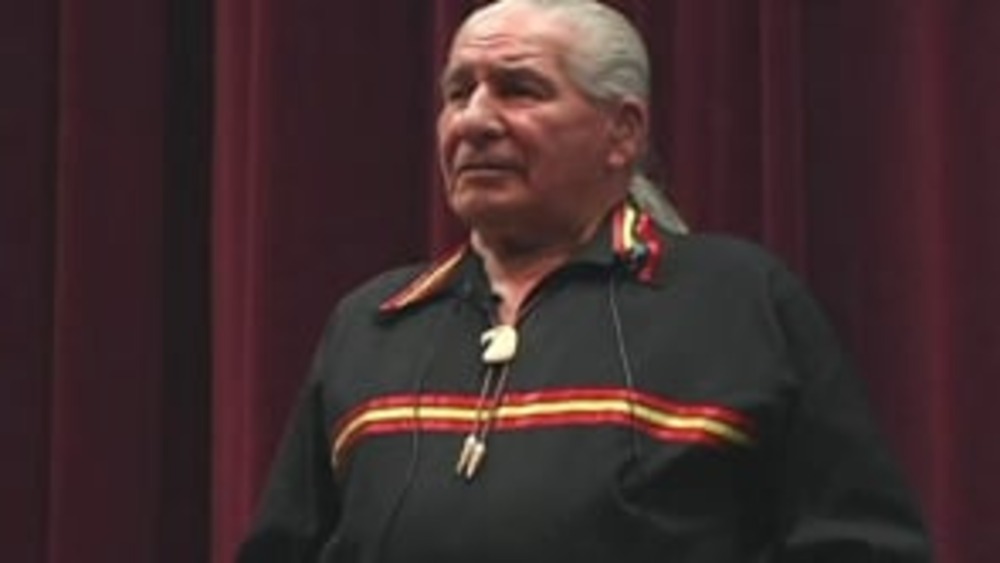
Oren Lyons: Looking Toward the Seventh Generation
Onondaga Chief and Faithkeeper Oren Lyons discusses the increasingly urgent issues of global warming and climate change and points to Indigenous peoples, their core values, and their reciprocal relationships to the natural world as sources of instruction for human beings to heed in order to combat…
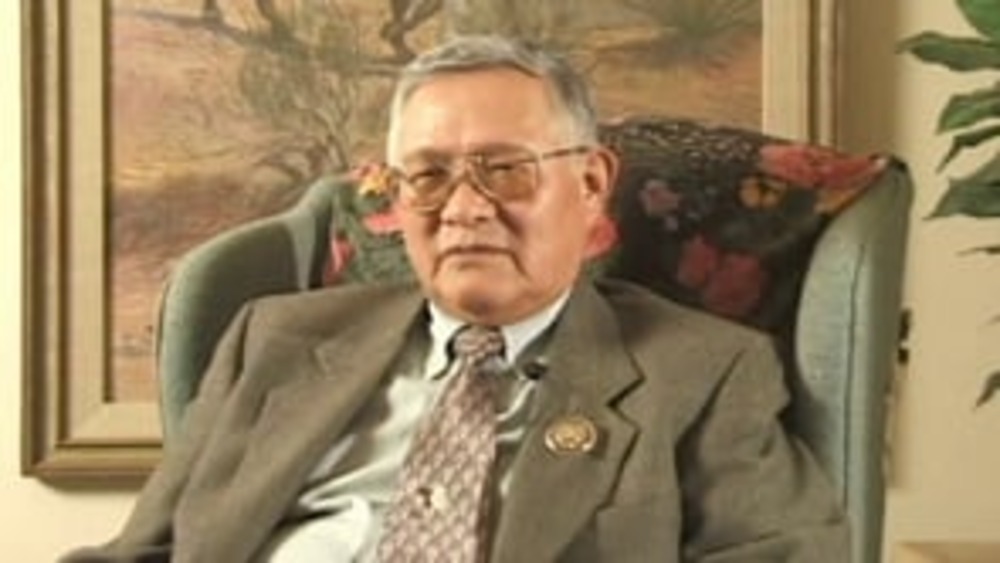
Great Tribal Leaders of Modern Times: Edward T. Begay
Produced by the Institute for Tribal Government at Portland State University in 2004, the landmark “Great Tribal Leaders of Modern Times” interview series presents the oral histories of contemporary leaders who have played instrumental roles in Native nations' struggles for sovereignty, self-…

Tohono O'odham Nursing Care Authority - Our Story
This video -- produced by the Tohono O'odham Nursing Care Authority using its monetary award from the Harvard Project on American Indian Economic Development's Honoring Nations awards program -- explains the history and development of the Archie Hendricks, Sr. Skilled Nursing Facility and the…
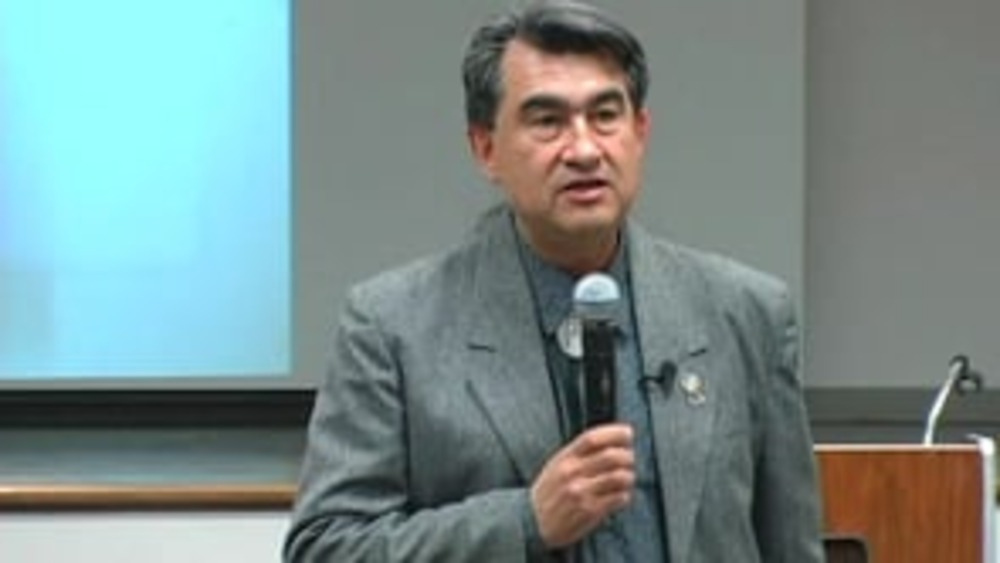
Greg Cajete: Indigenous Paradigm: Building Sustainable Communities
Greg Cajete, Director of Native American Studies at the University of Mexico, shares his more than three decades of work and research on Indigenous epistemologies for human and ecological sustainability, and discusses the need for scholars, academic institutions, and others to fully embrace these…
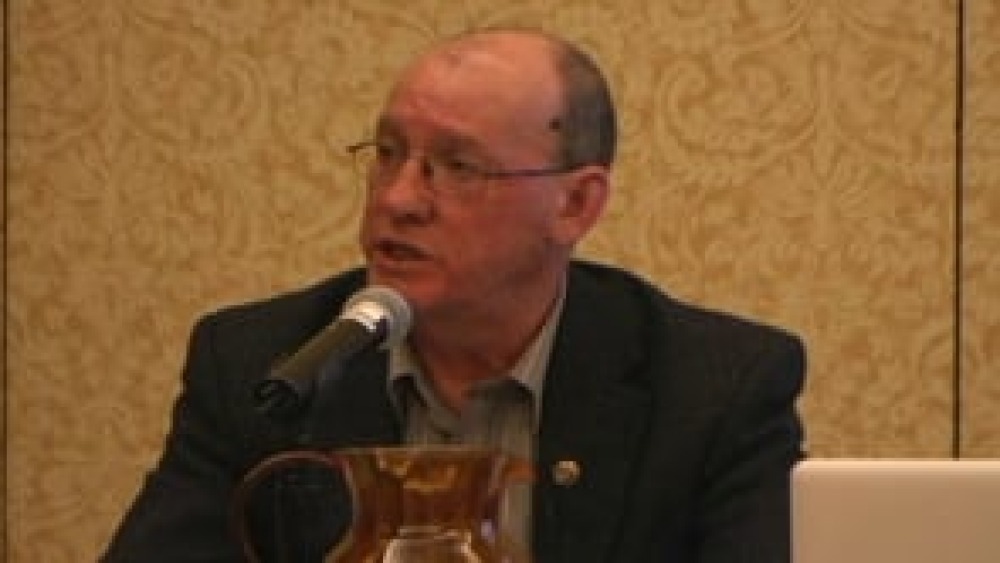
Terrance Paul: Building Sustainable Economies: Membertou First Nation
Chief Terrance Paul shares the keys to a sustainable economy through examples from the Membertou First Nation.
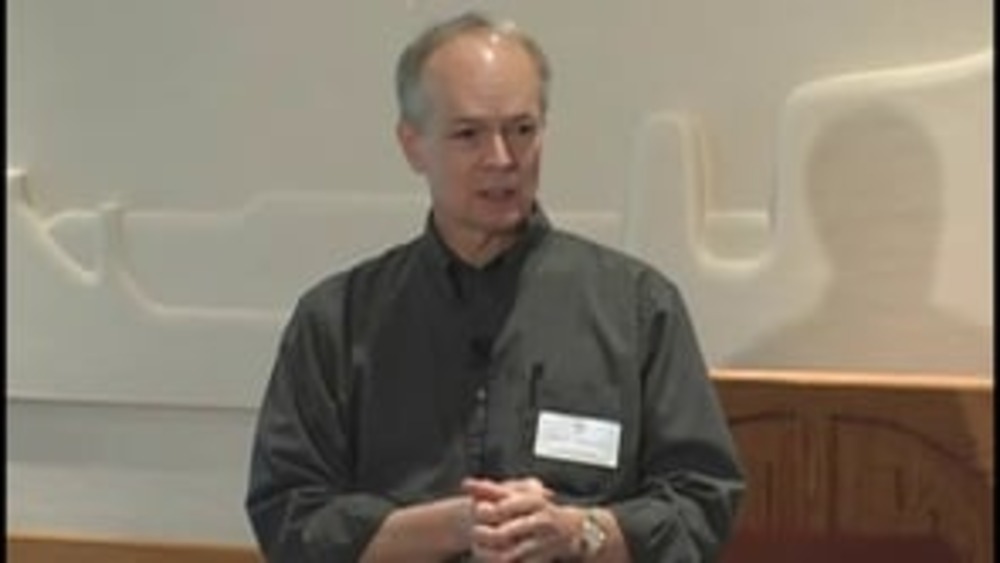
Stephen Cornell: Governance, Enterprises, and Rebuilding Native Economies
Harvard Project on American Indian Economic Development Co-Director Stephen Cornell discusses the two basic approaches Native nations typically take as they work to build and sustain nation-owned enterprises, and shares a number of examples from across Indian Country.
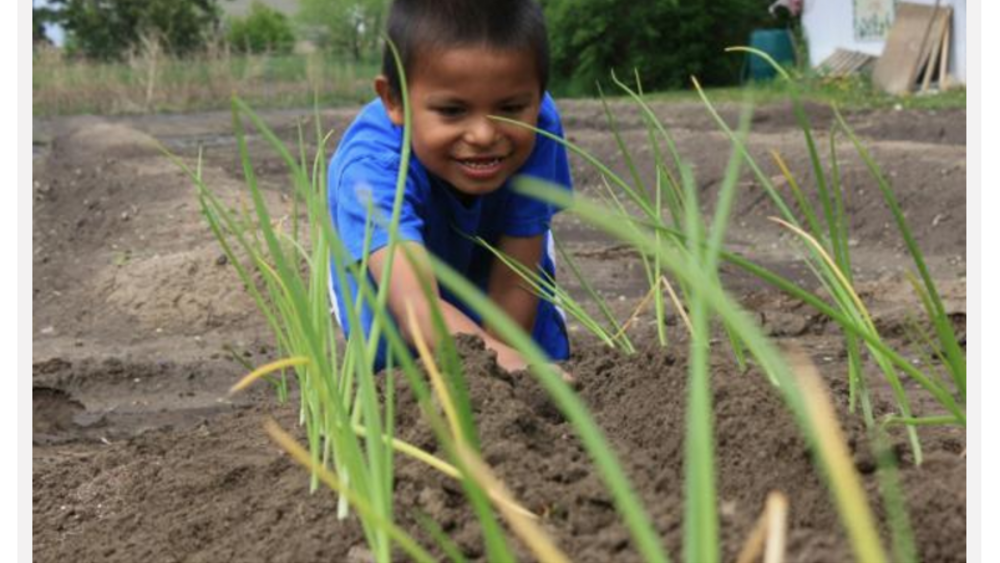
Cheyenne River Youth Project's Garden Evolving Into Micro Farm
When the Cheyenne River Youth Project started its organic garden in 1999, staff at the 26-year-old nonprofit would never have guessed where the little garden would take them. The two-acre Winyan Toka Win–or “Leading Lady”–garden is the heart of the youth project, and is becoming a micro farm.…
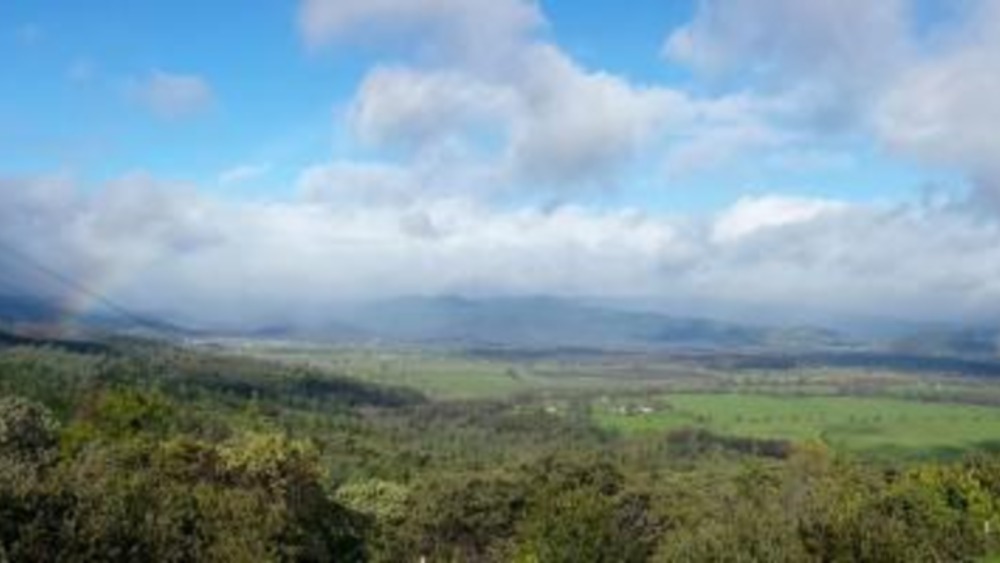
Round Valley First Forest Carbon Offset Project on Native Trust Land for California
The discussions of climate change and carbon footprints are important subjects within Indian country, and on February 24 the Round Valley Indian Tribes became a part of history as far as carbon emissions goes. Round Valley and New Forests on Tuesday announced the regulatory approval of the first…
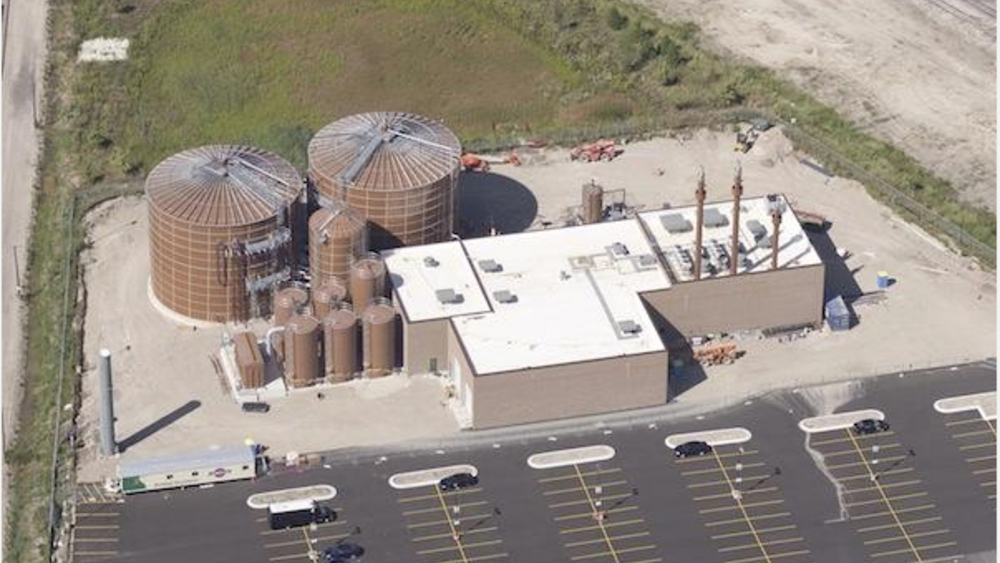
Potawatomi $20 Million Feedstock-to-Energy Conversion Plant Becomes Reality
Meeting the dual goal of environmental stewardship and sustainability, the Forest County Potawatomi Community has opened its newly constructed $20 million Renewable Energy Facility, which will convert area food waste into enough electricity to power 1,500 homes. It was the fruition of a project…
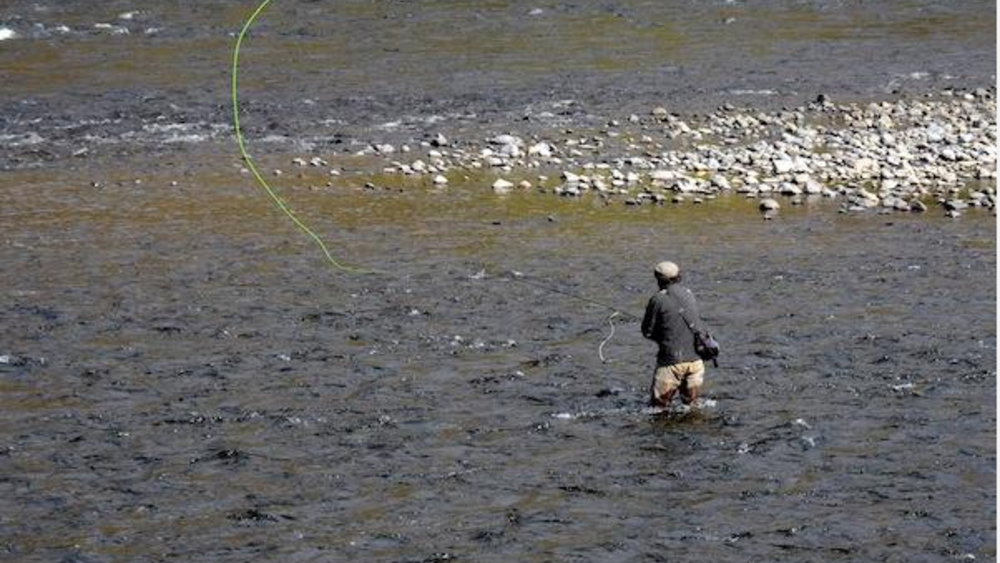
Tribes Recondition Steelhead to Bring Back Endangered Trout
The notion of “reconditioning steelhead” might sound outlandish, even a bit ominous, at least when applied to an animal. Reconditioning is what’s done to prepare discarded electronics for resale, and the word carries connotations of recycling. How does one recycle a fish? It turns out, though, to…

Tribal Strength Through Economic Diversification
The potential impacts of Internet gaming legalization was a major topic at last month’s National Indian Gaming Association (NIGA) convention. Another critical topic, not surprisingly, was economic diversification and Tribes’ ability to pursue and manage the process of planning for change.…
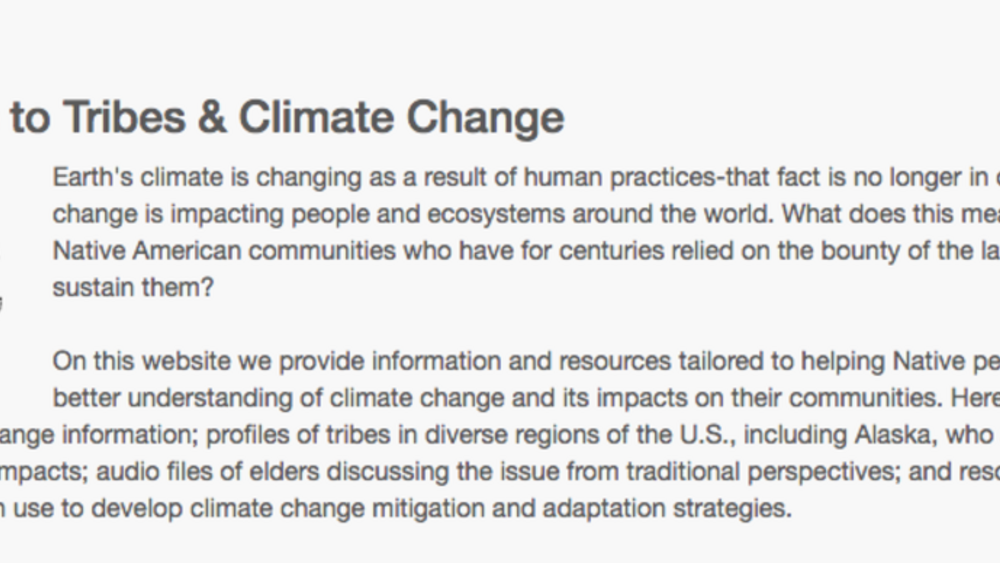
Mescalero Apache Tribe: Innovative approaches to climate change adaptation
There is no disagreement that the climate in the Sacramento Mountains has been getting warmer and dryer in recent years. Indeed, the temperature and drought regimes of late have been described as extreme by state meteorologists. The winter season, the period of time between the first freeze and the…
